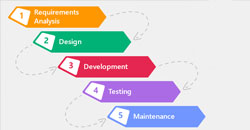A Contractual hiring is employment that requires you to sign and agree to terms of a contract before you begin working. Contractual work is usually for a specified amount of time and ends upon completion of a project or assignment. Some employers prefer to hire contractual workers if their workload fluctuates or if they want to test workers' capabilities before hiring them permanently. Contractual workers are often paid a lump sum upon project completion, but some receive payments during the course of the assignment.
Work Hours
Some contractual jobs require employees to work specific hours, while others allow workers to set their own schedules. For example, contractual jobs with schools and universities usually require employees to work class-time hours and after-school hours to serve the needs of students. Contractual employment with construction companies, hospitals, publishers and other service industries is often scheduled by the employee, according to weather conditions, clients' expectations, workload demands and deadlines. Required work hours and project completion dates are usually detailed in the labor contract, so you'll know what's expected.
Liability
You are required to complete projects and assignments in a timely and satisfactory manner, according to stipulations in the contract, or you could face legal consequences. According to The University of Vermont, a non-contractual employee can quit her job at any time without incurring liability, but an independent contractor is legally obligated to "make good for failure to complete the job." Quitting a contractual job before fulfilling your commitments can lead to lawsuits and other unwanted legal actions.
Payroll Taxes
Since a contractual worker is usually hired on a short-term basis, the Internal Revenue Service allows employers and hiring agencies to issue 1099-MISC forms, rather than W-2 forms, to those workers. As a result, employers don't pay payroll taxes, and income is considered self-employment income. A contractual job is an easy way for an employer to avoid paperwork and payroll tax obligations associated with permanent, full-time employment. As a contractual worker, you are still required to report the income on your federal tax return and pay self-employment tax.
Expenses
Unless the hiring agency or employer agrees to pay business or travel expenses for the contracted project or assignment, you are expected to cover those costs. Expenses for supplies, travel and other work materials are usually included in the total contracted amount, so it's your responsibility to budget your resources. With some contractual jobs, such as temporary teaching positions or short-term construction projects, hiring agencies provide equipment, textbooks, computers and other tools necessary for the job. If the labor contract doesn't specify what materials are provided, discuss those needs with the hiring agency before you sign.
Menu
- Home
- About Us
- Training
-

- IOSH UK
- OSHA 30HR
- Safety Diploma
- Modular Courses
- Govt. Diploma / Certificate

- QA QC Pharma
- TQM Pharma
- Pharmacovigilance
- Paramedical
- Emergency & First Aid

- International Logistics Management
- Supply Chain Management
- Import Export Management
- Warehouse Inventory Management
- Procurement Management

- ESS
- CCTV & ACS
- BMS
- Embedded System
- Robotics
-
- Consulting
- SERVICES
- Placements
- Academic
- Verification
- Contact Us
Contractual Hiring
Delivering ExcellenceTestimonial
- I did QA/QC Welding and Piping from TWG Institute and i must say, i was overwhelmed by the teaching i received. it was off the chain. Highly qualified and experienced sir taught me and i really enjoyed. after completion of the course i never felt i was engaged in it for 25 days.
- I did QA/QC Welding and Piping from TWG Institute and i must say, i was overwhelmed by the teaching i received. it was off the chain. Highly qualified and experienced sir taught me and i really enjoyed. after completion of the course i never felt i was engaged in it for 25 days.
Contact Us
- 3rd floor,KFC Building, Opp SBI,Gunfoundry, Near Chermas,Abids Hyderabad - 500001, Telangana, INDIA.
- +91 40 2323 8040
- +91 8099928580/82/79/78/77/76
- info@technoworldgroup.com
Useful Links
Photos








Copyright © 2024 TWG International. All rights reserved.
Terms of Use | Privacy Policy | Cancellation & Refund
Terms of Use | Privacy Policy | Cancellation & Refund
 Scroll
Scroll












